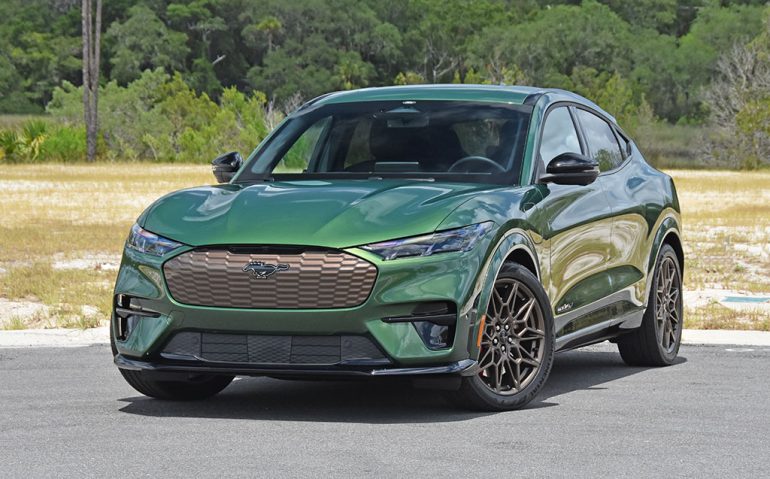Ford Braces for Even Larger EV Losses in 2025 however Stays the Course : Automotive Addicts
Automotive

Ford’s electrification push is proving to be a expensive endeavor, with its Mannequin e division anticipated to lose between $5 billion and $5.5 billion in 2025. That’s a good steeper deficit than the $5.1 billion loss reported for 2024, underscoring the monetary pressure related to constructing electrical autos (EVs) at scale. Regardless of the setbacks, Ford stays dedicated to the EV market, albeit with a extra strategic and measured strategy.
EVs Stay a Pricey Gamble for Automakers
The street to EV profitability has been lengthy and arduous for your complete trade. Tesla, now the world’s main EV model, didn’t publish its first worthwhile 12 months till 2020. Normal Motors, after years of heavy funding, solely lately started creating wealth on EVs. Ford, like many legacy automakers, has discovered that the excessive price of battery manufacturing stays a major barrier to profitability.
Even with its Mannequin e division dropping billions, Ford managed to extend EV gross sales by 34.8% in 2024, delivering 97,865 items within the U.S. Nevertheless, the true workhorses of its lineup had been hybrid and gas-powered autos. Hybrid gross sales surged by 40.1% to 187,426 items, whereas conventional combustion-engine autos remained dominant, accounting for 1,793,541 gross sales. This exhibits that whereas demand for EVs is rising, gasoline and hybrid fashions nonetheless generate the majority of Ford’s income.
Challenges With Massive EVs and Towing
Ford CEO Jim Farley lately acknowledged one of many largest hurdles going through massive electrical vans and SUVs: physics. Through the firm’s 2024 monetary outcomes name, Farley admitted that large EVs have “unresolvable” points, significantly on the subject of towing. Not like gasoline or diesel vans, electrical vans require huge batteries to take care of vary whereas pulling heavy hundreds, however those self same batteries add important weight and scale back effectivity.
It’s a tricky actuality for Ford, on condition that its F-Sequence has been America’s best-selling truck for 47 consecutive years. The F-150 Lightning has loved some success, nevertheless it’s clear that absolutely electrical vans nonetheless have main limitations for consumers who rely upon them for heavy-duty work.

A Shift in Technique: Delays, Cancellations, and New Approaches
Ford is recalibrating its EV roadmap in response to market realities. The corporate has delayed its next-generation midsize electrical pickup to 2027—about 18 months later than initially deliberate. Moreover, Ford scrapped its three-row electrical SUV mission, which was initially set to debut in 2027, after figuring out it wouldn’t be worthwhile throughout the first 12 months of launch. That call alone price the corporate $1.9 billion.
As a substitute of dashing new EVs to market, Ford is specializing in a extra adaptable technique. The corporate is growing multi-energy platforms that may assist each combustion and electrical powertrains, permitting for higher flexibility in a fluctuating market. This strategy allows Ford to hedge its bets, guaranteeing it isn’t absolutely reliant on EVs in case demand stagnates.
Cheaper EVs and Vary-Prolonged Hybrids within the Future
Ford can also be engaged on extra inexpensive EVs to compete with Tesla and Chinese language automakers. A devoted “skunkworks staff” is growing a low-cost EV platform, however these fashions aren’t anticipated to hit the market till 2027. Within the meantime, Ford is exploring extended-range electrical autos (EREVs), which use a gasoline engine as a generator to recharge the battery. This setup, much like what Mazda employs within the MX-30 R-EV, might assist alleviate vary anxiousness whereas nonetheless providing an electrical driving expertise.
Whereas Ford’s EV losses are mounting, the automaker isn’t backing away from electrification. As a substitute, it’s refining its technique to make sure long-term sustainability. By specializing in cost-cutting, hybrid expertise, and versatile platforms, Ford goals to navigate the challenges of the EV transition whereas sustaining its stronghold within the truck and SUV markets.
Whether or not this strategy can be sufficient to show a revenue stays to be seen, however one factor is obvious: Ford is in it for the lengthy haul.
FOLLOW US TODAY:





